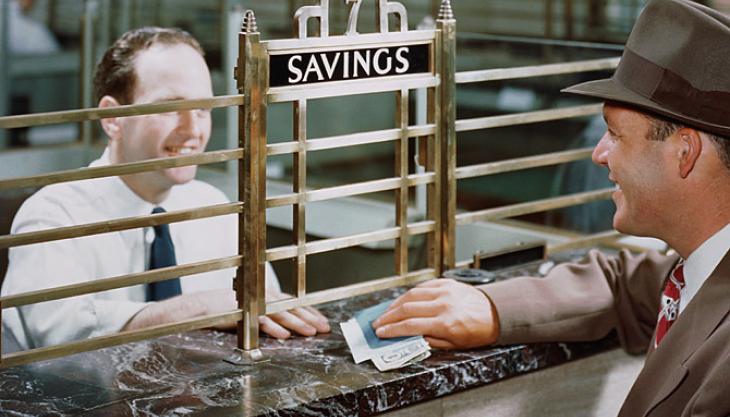What Happens in a North Carolina Bankruptcy When You Owe Money to Your Bank?
Submitted by Rachel R on Fri, 11/01/2013 - 11:07pm

Image source: DP.tj
If your financial circumstances have you considering bankruptcy, this means that every dollar counts. If you have cash in checking and/or savings, you may count on this to pay the bills that will remain after your other debt is discharged. This can include your car loan and mortgage or rent and other expenses that you can’t live without. But if something happens to the money in your bank account, your financial situation may become precarious. Here’s what you need to know about your bank account and bankruptcy!
Is Your Bank a Creditor?
If your bank is the same institution that extended you a loan or underwrites one of your credit cards and you file for Chapter 7 bankruptcy, your bank has the right to "set-off" the debts owed to them against funds from any of your accounts. It is important to note that the automatic stay against creditors also applies to your bank or credit union but they have another tool in their arsenal – the freeze!
Image source: Emirates247.com
Frozen Assets
The bank has to seek permission to break the stay if they want to try and collect the funds from your account to cover your debts. However, what they can do is freeze your funds to give them time to seek permission to break the stay and take the funds necessary to cover your debt to them. Even if they don’t succeed the time it takes to get your funds unfrozen can result in serious financial problems.
Well Fargo’s Bankruptcy Policy
One bank in particular is very aggressive when it comes to bankruptcy and its customers – Well Fargo. Wells Fargo monitors the electronic database of bankruptcy filers and whenever they see that one of their customers has filed, they automatically freeze their funds and notify their Trustee they have done so and wait for the Trustee to tell them whether or not it’s okay to release the funds. The bank’s policy has been upheld in Florida but struck down by the court in Alaska, Arizona, California, Hawaii, Idaho, Montana, Nevada, Oregon and Washington.
Image source: YesnerLaw.com
What to Do About Frozen Accounts
If your bank accounts have been frozen, your North Carolina bankruptcy attorney can file a motion to request the account be unfrozen. It will be up to the court to decide if your bank can take a set-off if you owe them money and whether or not to allow you access. It can take time to resolve this issue though and may cause you problems that you cannot afford.
Exemption Protection
North Carolina offers very reasonable exemptions for personal assets during bankruptcy, including up to $5,000 in cash assets depending on what other exemptions you claim. However, if your bank is a creditor or you bank with Wells Fargo or another institution that is aggressive with bankruptcy filers, you may want to open a new account and move your money prior to filing to protect yourself.
For more information on protecting your assets during bankruptcy, contact the law offices of John T Orcutt for a free consultation on personal or business bankruptcy in North Carolina.
Debts Hurt! Got debt? Need help? Get started below!
Serving All of North Carolina
- Bankruptcy Attorneys Raleigh NC (North)
- Bankruptcy Attorney Fayetteville NC
- Bankruptcy Attorney Durham NC
- Bankruptcy Attorneys Wilson NC
- Bankruptcy Attorneys Greensboro NC
- Bankruptcy Attorneys Southport NC
- Bankruptcy Attorneys Wilmington NC
Bankruptcy Attorneys Raleigh NC (North)
6616 Six Forks Rd #203 Raleigh, NC 27615 North Carolina
Tel: (919) 847-9750

Bankruptcy Attorney Fayetteville NC
2711 Breezewood Ave Fayetteville, NC 28303 North Carolina
Tel: (910) 323-2972

Bankruptcy Attorney Durham NC
1738 Hillandale Rd Suite D Durham, NC 27705 North Carolina
Tel: (919) 286-1695


Bankruptcy Attorneys Greensboro NC
2100 W Cornwallis Dr. STE O Greensboro, NC 27408 North Carolina
Tel: (336) 542-5993

Bankruptcy Attorneys Southport NC
116 N Howe St. Suite A Southport, NC 28461 North Carolina
Tel: (910) 218-8682

Bankruptcy Attorneys Wilmington NC
116 N. Howe Street, Suite A Southport, NC 28461 North Carolina
Tel: (910) 447-2987
